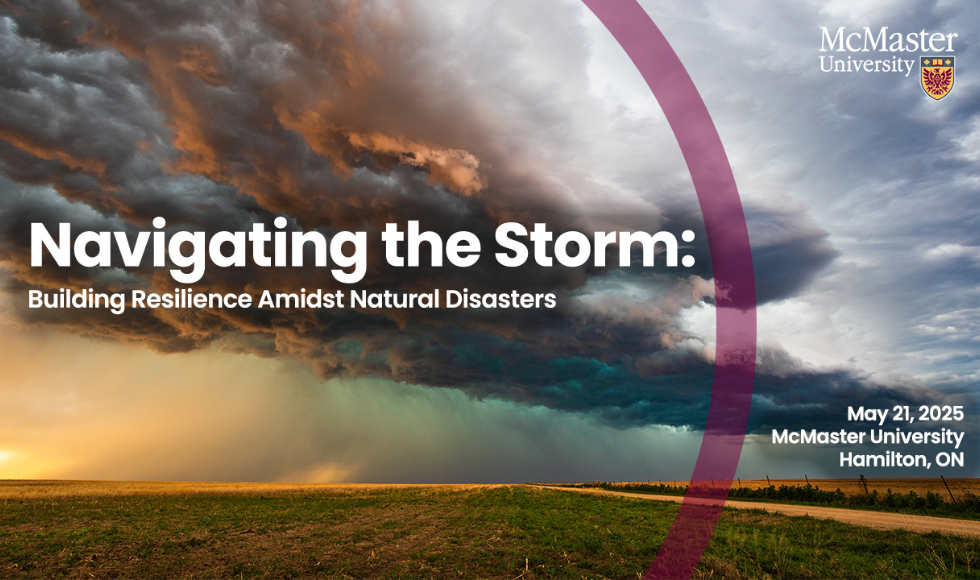Navigating the storm: McMaster researchers on building climate resilience

With wildfires sparking across parts of Western Canada and Ontario recovering from recent floods, McMaster University is bringing together researchers to discuss what’s driving these disasters—and what we can do about them.
As wildfires blaze across Western Canada and rising runoff fuels flood risks in Ontario’s lakes and rivers, McMaster researchers are coming together to explore what’s driving these disasters—and what we can do about it.
“Navigating the Storm: Building Resilience Amidst Natural Disasters” will take place on Wednesday, May 21, 2025 at L.R. Wilson Hall. Hosted by the faculties of Science and Engineering and the DeGroote School of Business, the public event will bring together researchers across disciplines to discuss the realities of climate-related disasters, the purpose they serve and what it takes to build long-term resilience.
“Communities across Canada are already feeling the effects of a changing climate,” says Maureen MacDonald, dean of the Faculty of Science and the incoming provost of the university.
“This panel will help us understand these risks and explore actionable solutions that protect our communities—and our future.”
Anthony Morgan, McMaster alumnus and host of CBC’s The Nature of Things, will moderate the discussion. Known for his ability to make scientific topics clear and engaging, he will also lead an audience question-and-answer session, giving attendees the chance to share their thoughts.
The panel will bring together four McMaster researchers whose work sheds light on different dimensions of climate resilience.
Civil engineering professor Sarah Dickson-Anderson, who also serves as associate dean in the Faculty of Engineering, studies water security and infrastructure challenges in rural and remote communities. Fellow civil engineering professor Ramla Qureshi focuses on how infrastructure performs under extreme conditions, emphasizing the need for equity in planning.
Brent McKnight, an associate professor of strategic management at the DeGroote School of Business, looks at how organizations can better prepare for and recover from environmental disruption. Health geographer Niko Yiannakoulias, from the School of Earth, Environment & Society, uses mapping to pinpoint where communities are most at risk and why.
“Our researchers are approaching these issues from different angles, but the connections between their work are what make this conversation so important,” says Heather Sheardown, dean of the Faculty of Engineering.
“Climate change is a serious and complex problem facing our planet, with solutions that lie between science and business,” says Khaled Hassanein, dean of the DeGroote School of Business. “This event reflects the kind of collaboration McMaster is known for—connecting people and ideas to support communities, guide policy and shape decision-making.”
This event will be held in a hybrid (livestream and in-person) format, beginning with a reception from 5 to 6 p.m., followed by the panel discussion and audience Q&A from 6 to 7:30 p.m. Admission is complimentary, but registration is required.
Please visit the event registration page for more information or to RSVP.


